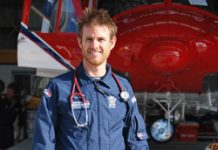 More than one in three (37%) medical registrars have described their workload as “unmanageable” in the largest survey of UK hospital doctors published in the Royal College of Physicians (RCP) report Hospital workforce: Fit for the future?
More than one in three (37%) medical registrars have described their workload as “unmanageable” in the largest survey of UK hospital doctors published in the Royal College of Physicians (RCP) report Hospital workforce: Fit for the future?
A further 59% describe their daily workload as “heavy”. This compares to less than 5% of general practice registrars who believe their own workload is either heavy or unmanageable.
The RCP is calling for urgent action to resolve these issues to prevent patient care being threatened. “The potential threat to patient care is alarming. Physicians are now reporting that patients are at risk of being unsafe,” said Suzie Hughes, chair of RCP’s patient and carer network.
“The skills we train our doctors to have must be developed around patients’ needs. If this is not urgently addressed, frail elderly people who require hospital care will be poorly serviced by the NHS. We cannot risk providing substandard care to such a vulnerable group.”
REGISTRAR TRAINING
The RCP also warned that the training of medical registrars is highly variable and is too often compromised by the heavy workload. Only 38% of registrars feel that their training in general medicine was good or excellent.
“Medical registrars should not be drowning under the weight of their workload – this is not conducive to good training or high quality patient care,” said Dr Ben Molyneux, chair of the BMA’s junior doctors committee.
“Hospital services need to be redesigned to ensure that frontline service delivery should not fall disproportionately on this group of doctors in training. If we don’t do this we risk the next generation of consultants avoiding careers in acute medical specialties.”
It also found that senior specialist skills are not evenly distributed across the country. Patients in London have almost double the number of consultants per head of population compared to the East Midlands.
The amount of patients requiring general skills is increasing with the aging population. Frail elderly patients’ needs are best met by geriatric specialities but in 2011 it was not possible to fill 50% of consultant posts advertised in geriatric medicine.





































